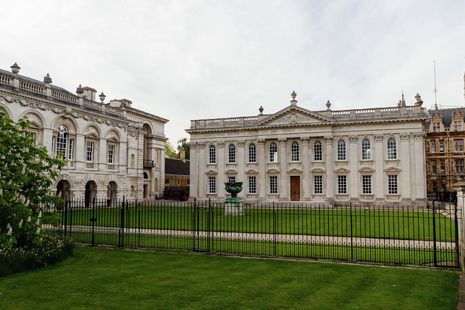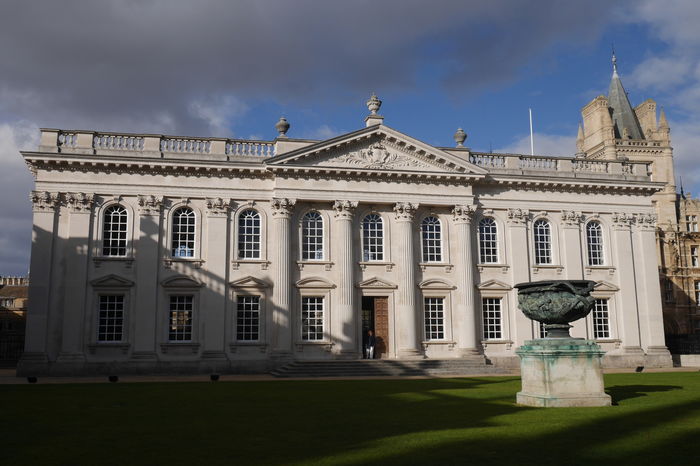Academics lead campaign against Lord Browne Chancellor bid
Over 250 people have signed an open letter opposing Browne’s candidacy due to his links to fossil fuels and controversial higher education policy

Cambridge academics are campaigning against the candidacy of Lord John Browne for Chancellor, citing concerns over his record informing education policy and leading BP.
274 individuals have signed an open letter declaring Browne unfit for the Chancellorship. The signatories include many Cambridge academics, as well as staff at Oxford, Bristol, and York universities.
Browne, a Cambridge alumnus and former CEO of BP, has emphasised the importance of free speech, academic freedom and pioneering research during his campaign.
The letter takes aim at Browne’s role as chair of a review which informed the education policy of David Cameron’s coalition government. The “Browne Review,” the letter claims, “aroused enormous opposition” due to its support for a “market-driven” higher education model.
“Many academics and others would consider it as at least an impolitic, and perhaps even an unacceptable, decision to appoint such a figure as Chancellor at this point,” the statement claims.
The opponents to Browne’s candidacy have also attacked his career at oil and gas company BP. The University of Cambridge has distanced itself from the fossil fuel industry in recent years, though campaigners have warned that this action has not gone far enough.
Browne’s appointment as Chancellor would “send a damaging […] signal” given the “heightened feeling in the University about the continued exploitation of fossil fuels,” the letter claims.
Addressing his time as the head of BP, Browne has said that “holistic solutions” to the climate crisis are “essential,” and that he led the company to “integrate both climate and energy needs”.
The open letter campaign has not suggested an alternative candidate to Browne, instead urging voters to elect a Chancellor who “will be widely accepted within the university and perceived as such by the outside world”.
Multiple candidates for the Chancellorship have also criticised Lord Browne’s record. Tony Booth, a local environmental campaigner and former education professor, has said that the Browne Review “accelerated the market model” of education, leading to high fees which “inevitably exacerbate inequality of opportunities for students”.
Wyn Evans, another candidate for Chancellor and a professor of astrophysics, has claimed that the consequences of Browne’s higher education review include “debt-ridden universities, rising student debt and worries about fair access”.
Evans has described Browne as “the most well connected” candidate for Chancellor, writing: “The form book says he should be home and dry.” Browne is backed by two former Cambridge vice-chancellors, Sir Leszek Borysiewicz and Lord Broers, as well as the masters of Trinity and St John’s Colleges.
Dorothy Byrne, president of Murray Edwards College, said of her backing for Lord Browne: “John Browne’s career in the energy industry is well known. So is the fact that he has been a loud and consistent advocate for the energy transition for more than 30 years, from his time at BP to his current role as an investor in climate technologies.”
“It is the very fact that he was one of the leading figures in the oil industry that makes his advocacy for action against the dangers of climate change so important and influential. His ability to bridge different points of view and see the bigger picture is just one of the reasons that he would be an outstanding Chancellor,” she said.
The election of Cambridge’s next Chancellor will take place later this month, through online and in-person voting. The successful candidate will hold the post for 10 years.
The University of Cambridge was contacted for comment.
 Features / Beyond the porters’ lodge: is life better outside college?24 February 2026
Features / Beyond the porters’ lodge: is life better outside college?24 February 2026 News / Cambridge academics sign open letter criticising research funding changes22 February 2026
News / Cambridge academics sign open letter criticising research funding changes22 February 2026 Theatre / Footlights Spring Revue? Don’t Mind if I Do!25 February 2026
Theatre / Footlights Spring Revue? Don’t Mind if I Do!25 February 2026 Fashion / The evolution of the academic gown24 February 2026
Fashion / The evolution of the academic gown24 February 2026 News / Student and union protesters hold ‘Trans Liberation Solidarity Rally’ 24 February 2026
News / Student and union protesters hold ‘Trans Liberation Solidarity Rally’ 24 February 2026










![How to Create an Attractive Freelancer Portfolio [5 Tips & Examples]](https://www.varsity.co.uk/images/dyn/ecms/320/180/2026/02/vitaly-gariev-ho2tNOWZYXM-unsplash-scaled.jpg)